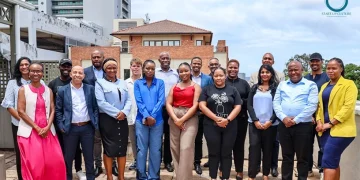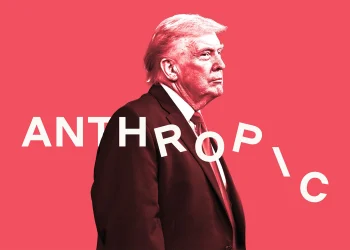When news emerged that a 132kW photovoltaic power station had been installed to provide uninterrupted electricity along Nigeria’s iconic Third Mainland Bridge, it seemed at first like a straightforward infrastructure update. Shared by John Zhao of CCECC, the announcement marked yet another milestone in Chinese-African collaboration on major public works.

But beneath the surface, this development offers insight into a wider transformation, one that sits at the intersection of clean technology, digital infrastructure, and public sector innovation.
The Technical Foundation: Clean Energy Meets Intelligent Control
At the heart of this development is a 132-kilowatt solar photovoltaic system, backed by a high-efficiency energy storage solution designed to produce 192,000 kilowatt-hours annually. That capacity ensures continuous lighting across one of Nigeria’s busiest traffic corridors while dramatically reducing dependence on grid electricity and eliminating the need for fossil-fuel generators.
More significantly, this infrastructure includes a smart management system that allows for intelligent monitoring, predictive diagnostics, and remote fault resolution. This transforms a basic solar project into a model for digitally-enabled infrastructure. Integrated highway monitoring capabilities further enable traffic analytics, structural surveillance, and improved emergency coordination.
This represents a practical shift in how large public infrastructure can be both sustainable and data-driven from day one.
Why the Third Mainland Bridge Matters
The Third Mainland Bridge is not just a vital route connecting Lagos Mainland to the Island. At nearly 12 kilometres in length and serving hundreds of thousands of commuters daily, it is a national symbol often used to reflect the state of Nigeria’s infrastructure and the pace of its urban evolution.
This upgrade signals the application of emerging technologies on one of the country’s most visible landmarks. If a bridge of this magnitude can now operate with self-sustaining power and digital controls, it sets a reference point for what is achievable across highways, hospitals, airports, and even schools.

Implications for Nigeria’s Digital Infrastructure
Nigeria’s ambition to become a regional digital powerhouse cannot be realised without foundational systems that work consistently. And nothing is more foundational than power.
This installation directly supports the development of a digitally connected society in three critical ways:
- Decentralised Energy Enables Digital Scale
Distributed energy systems like this one reduce the country’s over-reliance on national grid infrastructure. This decentralisation is especially important in a country where power instability continues to undermine growth across every sector, from financial services to manufacturing. A reliable, localised system ensures continuity for smart mobility services, real-time data collection, and digitally controlled urban utilities.
- Infrastructure That Learns and Responds
This project introduces intelligent infrastructure that goes beyond traditional construction. The management system enables real-time monitoring of performance, offering authorities the ability to predict maintenance needs and identify anomalies before they cause outages or failures. It increases efficiency, reduces downtime, and lowers operational costs.
In a city as dynamic as Lagos, that kind of agility is invaluable.
- New Template for Global Partnerships
This project is also a reflection of how partnerships between African governments and Chinese engineering firms are evolving. Rather than focusing solely on heavy construction, the emphasis is shifting to include digital, sustainable, and responsive infrastructure. It offers a new template one that speaks to long-term public value rather than short-term physical output.
From Pilot to Policy: What Needs to Happen Next
The success of this installation should serve as a model for replication. Nigeria’s infrastructure agencies must now consider how such systems can be standardised and scaled. This will require:
- Embedding smart energy systems in all new federal and state infrastructure developments
- Introducing tax and regulatory incentives for local governments and private developers who adopt clean and intelligent systems
- Developing public-private partnerships to localise production of components and train technical talent for maintenance and optimisation
- Enforcing public procurement policies that favour energy efficiency and intelligent system integration
These steps will ensure that innovation is not limited to one landmark, but becomes a national standard.
Communicating for an Audience Where Trust Is Eroded
In a country where public trust in institutions is often fragile, the communication of government-backed infrastructure projects must move beyond ceremonial ribbon-cutting and vague ministerial statements. Today’s audience is digital, data-hungry, and deeply sceptical. Citizens expect clarity, not noise, and evidence, not platitudes. Figures like Minister of Communications, Innovation and Digital Economy, Dr. Bosun Tijani, and O’tega Ogra, the Senior Special Assistant to the President on Digital and New Media, are uniquely positioned to reset the tone. Their roles are no longer simply to inform. They must engage, contextualise, and translate, turning complex infrastructure initiatives into understandable, shareable, and trackable digital narratives.
But they must also do more. In this new era of participatory governance, they must cultivate and empower a network of allies, those who, without formal mandate, have been championing these stories through personal initiative, civic creativity, and digital influence. Story ownership is no longer the domain of ministries alone. We are all custodians of public progress. Yet, the story must begin with the institution that holds the mandate for the public good. It must start from a place of transparency and intentionality, and then ripple outward through credible messengers who amplify, localise, and humanise the message.
In a hyper-connected society, the success of a project like the Third Mainland Bridge solar upgrade rests as much on how well it is communicated as on how well it is engineered. Clear visuals, performance dashboards, community impact stories, and real-time transparency are not extras. They are the infrastructure of trust.

A Bridge to Possibility
The installation of a solar-powered, digitally managed energy system on the Third Mainland Bridge is not a ceremonial gesture. It is a statement about what infrastructure in Nigeria can become; functional, sustainable, connected, and intelligently managed.
It supports mobility, yes. But it also supports commerce, public safety, logistics, and real-time governance.
When Nigeria’s roads can light themselves, monitor themselves, and respond to the demands of a digital economy, the country moves closer to a new kind of development, one defined not only by concrete and steel, but by systems that think, learn, and deliver consistent value to the people.
This is not just about electricity. It is about infrastructure that enables a new generation of services, security, and growth, and it is already underway.















